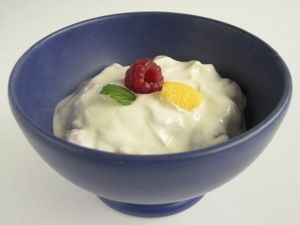News
Danish study claims eating probiotic food has zero effect on health
This article is more than 9 years old.
Step away from the A-38

Go for the fry up instead (photo: Schwäbin)
The sales of products containing probiotics – the living micro-organisms that health fanatics swear by – have exploded in recent years, resulting in a 215 billion kroner market worldwide.
And yet, a new study by the University of Copenhagen has found there is no demonstrable benefit consuming fermented vegetables, sour milk products or any other probiotic foods and drinks.
A punch in the gut for yoghurt
Research conducted at the university and published in the scientific journal Genome Medicine reveals that although it has become clear that the 50 trillion bacteria living in human intestines do play a large role in health, eating probiotics does nothing to increase or improve gut flora.
“It surprised us there is no scientific evidence for the use of probiotics,” Professor Oluf Borbye Pedersen from the Novo Nordisk Foundation Metabolic Centre at the University of Copenhagen told Politiken.
“Many people spend oceans of money on these live micro-organisms to ensure healthy intestinal flora. But scientifically speaking, no clear positive effect was detected.”
The placebo effect
Danish researchers made a systematic analysis of seven previously published randomised controlled trials of healthy adults receiving different types of probiotics, and the conclusion was that the intestinal flora does not change when compared with the subjects who received placebos.
“The focus on intestinal bacteria has created a huge industry,” said Pedersen. “People was to be healthy, but unfortunately there is no scientific evidence for a beneficial effect of probiotics in healthy adults.”
It’s just food
Ole Linnet Juul, the head of DI Fødevarer, welcomed the interest.
“We do not say that probiotics cure disease, but they have a beneficial effect on sluggish digestion and bloating, and provide well-being for many people,” said Juul.
Juul stressed that the industry “makes food – not medicine”.










































